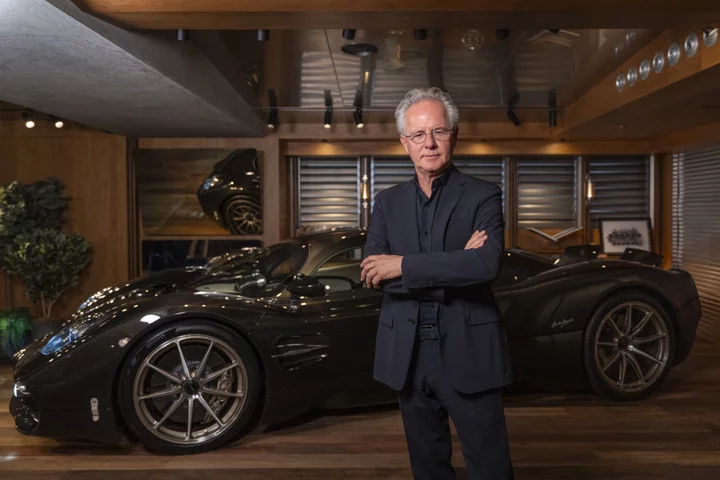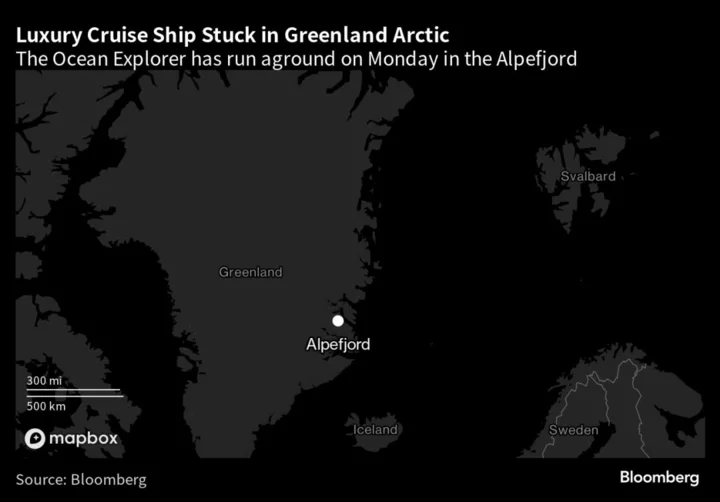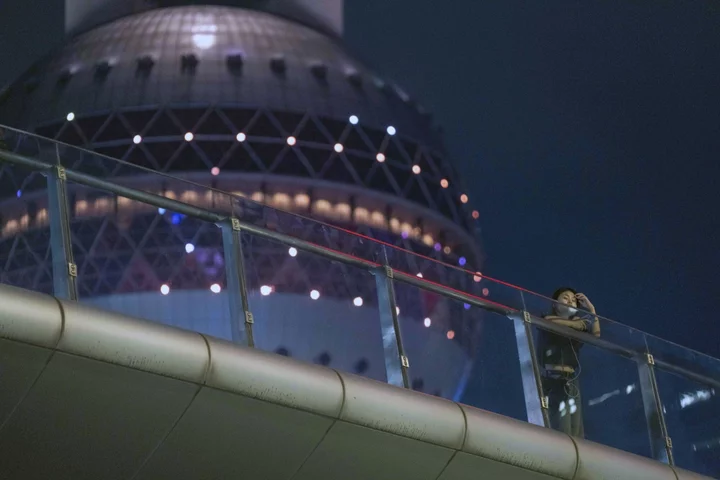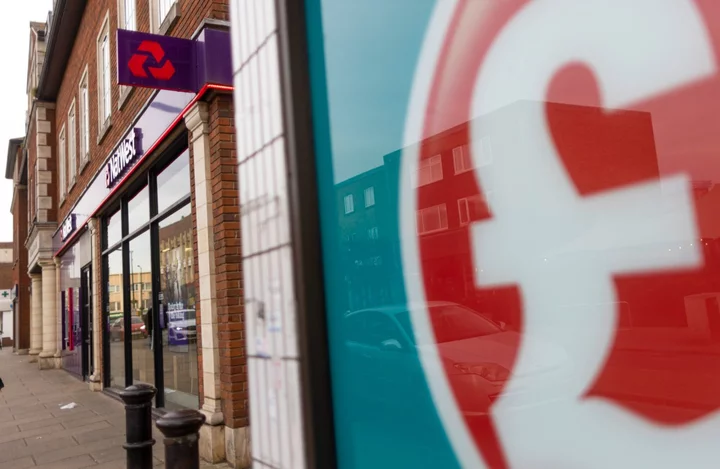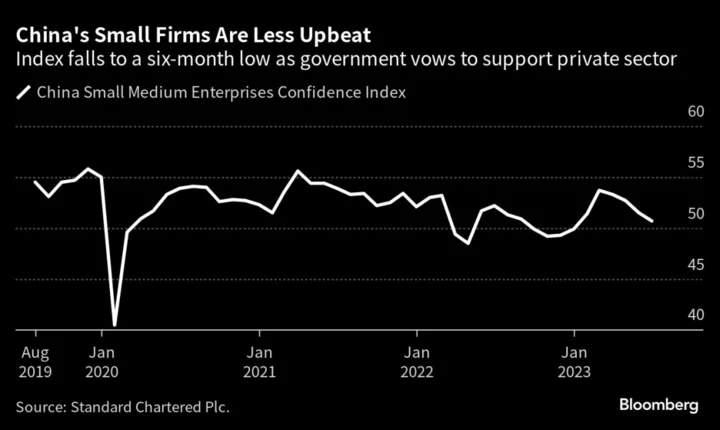Italian hypercar maker Pagani Automobili SpA is exploring new technologies including electric vehicles, an area where China’s expertise would be of help for European brands, according to founder Horacio Pagani.
It will take a while for hypercars like Pagani to go electric though, chiefly because of the impact a battery’s weight has on performance. Drivers of these sorts of cars will take some turning too, given their general fondness for internal combustion engines and traditional features like manual transmissions.
China’s “car prices are cheaper than European brands, and therefore the producers of European cars need to pay a lot of attention and put a lot of effort in to try to remain in this specific market and stay competitive,” Pagani said in an interview with Bloomberg News in Hong Kong.
Established in the 1990s, Pagani is one of few ultra luxury car manufacturers still operating independently. The company, based in Modena, produces about 50 vehicles a year and orders until 2025 have already been filled, according to Horacio’s son Christopher.
The pair traveled to Hong Kong for the Asia-Pacific launch of Pagani’s third-generation supercar, the Utopia, on Friday. Pagani plans to make only 99 coupe versions of the vehicle, which has a starting price of more than €2 million ($2.2 million) and weighs less than 1,300 kilograms (2,866 pounds), thanks in large part to its carbon-fiber frame, which the senior Pagani helped pioneer.
Read More: ‘Phenomenal Display’ Reveals Hong Kong’s Rare Vintage Car Gems
Pagani, who is sometimes dubbed the Leonardo Da Vinci of carmaking, and his company have handcrafted bespoke vehicles for customers for about two decades since the introduction of their first model, the Zonda.
Now he is also on a team started in 2018 to research innovations such as EVs.
But until batteries get lighter and charging times faster, they won’t be fully adopted by high-performance cars as they’ll be heavy and may run out of juice after a few laps on a race track, the younger Pagani said, declining to give a date for when Pagani may consider introducing EVs.
“It’s so different that you are losing a little bit of fun,” he said.
Still, car manufacturers should look to China on EVs, the Paganis said.
“There are a lot of opportunities for the Chinese brands in the EV segment and actually they’re doing it very well when it comes to product and pricing,” said Pagani, the father.
China has the world’s largest EV market, projected to account for 60% of this year’s 14.1 million new passenger EV sales globally, according to BloombergNEF. Domestic brands led by BYD Co. are outselling foreign ones in China for the first time, spurred on by their wide range of EVs and plug-in hybrids.
Despite an uncertain economic outlook globally, demand for ultra luxury cars is strong. Ferrari, which went public in 2015, set sales and profit records last year, selling 13,221 cars. Volkswagen AG.-owned Lamborghini delivered 9,233 vehicles in 2022, also an all-time high.
With only about 500 Pagani cars in existence, the brand is a rare exception as their value appreciates. Summer Wang, a consultant for Pagani, said she wasn’t aware of transactions where a Pagani sold for less than its original price.
Formula One driver Lewis Hamilton ordered a customized Zonda for €1.4 million in 2014 and sold it for €10 million in 2022, Italian auto magazine Quattroruote reported.
Big Take Podcast: The EV Era Is Here and China Is in the Lead
While succession is now on the Pagani family’s mind, no specific plan is in place. Christopher and Leonardo, the two sons of 68-year-old Horacio, have both been involved in the company “since day one, starting from washing cars up until now, having different responsibilities at the factory,” Christopher said.
“We will always find the right decision for us when it comes to what’s next.”
--With assistance from Yvonne Man and Joanne Wong.

